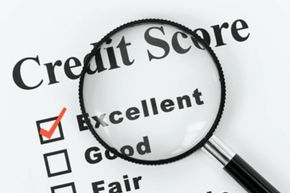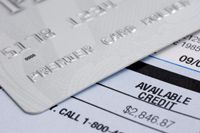Creditis a way of life -- unless you're one of the lucky few with all the cold hard cash. Yourcredit scoreis essentially a report card of your financial health that lenders look at when you want to borrow money. It provides a quick glance that forecasts whether you're likely to default within the next two years. Here's the insider scoop on what those numbers mean.
Who Looks At Your Credit Score
Pretty much any time you want to borrow money, your credit score is going to come under scrutiny. We expect a conversation about our credit history for transactions involving home loans and credit cards. But services like utilities and insurance companies also use your credit score to determine what kind of customer you'll be. If you have a low score, you may have to pay a large deposit to your utility company, or a higher premium to yourcar insurance提供者。Landlordsoften check your credit before signing your lease, and in some cases, potential employers may even want to see the numbers before offering you a job.
Advertisement
It's All in the Numbers
Most credit agencies use the FICO formula for computing credit scores. This method assigns each consumer a credit rating between 300 and 850, with the average score falling round 720. If you fall in the range of 720 to 850, you're considered the cream of the crop to potential lenders. You'll get the best rates on home mortgages and credit cards, and you're in a great position to do a little comparison shopping. The next range is 675 to 719, and though you're not in the top tier, you should still be able to get a loan -- you just may pay a bit more interest. If your score lands between 620 and 674, this is considered below average and you're not going to have as many options. You still may qualify for a loan or a credit card, but expect to drop a chunk of change on interest. And if you dip below 620, you'll find yourself amongst the ranks of sub-prime borrowers, meaning you're the riskiest candidate for a loan. If you can find a lender willing to invest in you, you'll pay a hefty interest rate for the privilege of getting a loan.
What Your Credit Score is Based On
Credit scores are computed by looking at five areas of your borrowing history:
- 付款history
- Amount of debt
- Length of credit history
- New credit
- Types of credit
付款history is a biggie -- it accounts for 35 percent of your score. We all know that timely mortgage payments are important, and of course credit card payments. But even late payments on utilities or unpaid parking tickets can be sent to collections, resulting in a ding in your score. How much you owe is another big factor that accounts for 30 percent of your score. Your debt is measured against how much you make a year and how much credit you have available. Your credit history makes up 15 percent of your score, so the longer you've been borrowing, the better. This isn't bad news for new borrowers, though, as long as you keep your new credit squeaky clean. Lenders also look at how many new credit accounts you've opened in the past 30 days, which makes up 10 percent of your score. And the last 10 percent is influenced by the type of credit accounts you have open. A diverse portfolio of a mortgage, car payment and credit cards will bode well for you.
Advertisement





